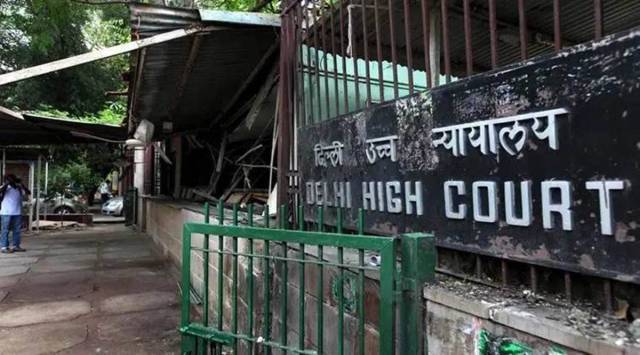Virginity test unconstitutional, archaic even on accused: Delhi HC
The HC was hearing a plea by Sister Sephy, a nun from St Pius Convent in Kerala's Kottayam, who has been convicted and sentenced to life in Sister Abhaya's murder case by a Kerala trial court.
 Sister Sephy had moved the Delhi High Court challenging the virginity test conducted on her. (File Photo)
Sister Sephy had moved the Delhi High Court challenging the virginity test conducted on her. (File Photo) Declaring that “virginity test” conducted on a woman detainee or accused is unconstitutional, “sexist and in violation of the right to dignity”, the Delhi High Court on Tuesday observed that this test rests on a gender bias and “society’s view and obsession with the false concept of virginity being equated with purity of a woman”
Among its several directions, the single-judge bench of Justice Swarana Kanta Sharma directed circulation of information regarding unconstitutionality of the test to all investigating agencies or stakeholders through the Union Home Secretary, Union Health and Family Welfare Secretary and Secretary, Health and Family Welfare, Delhi government.
“This Court…holds that this test is sexist and is in violation of human right to dignity even of a female accused if she is subjected to such a test while being in custody. The long-term and short-term negative effects of such a test have been reported in many reports,” Justice Sharma said.
The HC was hearing a plea by Sister Sephy, a nun from St Pius Convent in Kerala’s Kottayam, who has been convicted and sentenced to life in Sister Abhaya’s murder case by a Kerala trial court. In her 2009 plea, Sephy had challenged the conduct of the virginity test on her by the CBI and pleaded that it be declared unconstitutional.
She also sought punishment for officials who subjected her to undergo the test against her free will and leaked the result to the media.
In an interim order on June 23 last year, a division bench of Kerala High Court suspended the life imprisonment and granted Sephy and co-accused Father Kottoor bail until disposal of their petition challenging the trial court’s verdict.
The Delhi HC noted that Sephy had filed the plea before the Supreme Court declared the virginity test unconstitutional. On the test’s constitutionality, the HC observed that “even as an accused, fundamental rights available to an accused/ prisoner/ detainee are not suspended so far as the question of their privacy and dignity is concerned”.
In its 2013 verdict in Lillu v State of Haryana, the SC held that the virginity test is “violative of right to dignity, integrity and privacy of victims of sexual assault”. In the 2020 decision in State of Gujarat v Rameshchandra Ramabhai Panchal, the top court held that “the two-finger test or virginity test was declared as unconstitutional”.
Rejecting CBI’s argument that virginity test is recognised under CrPC Section 53 (examination of accused by medical practitioner at the request of police officer), Justice Sharma held that the ‘explanation’ to Section 53 mandates medical examination of an accused person by “use of modern and scientific techniques”. Justice Sharma noted, “It would not be out of context to state here that, by no stretch of examination, ‘virginity test’ can presumably fall under the said provision. Virginity test is neither modern nor scientific, (it is) rather archaic and irrational.”
Virginity, the court held, does not have a definite scientific and medical definition, and the test amounts to “controlling women’s body, their sexual behavior”.
Justice Sharma said, “This court is not impressed with the argument of the law enforcement agency that the virginity test was necessary to uphold the laws since this argument itself flouts basic principles that a person’s dignity even in custody has to be upheld. The conducting of virginity test not only amounts to interference of the investigating agency with the bodily integrity but also psychological integrity of a woman, which will have serious and profound effects on the mental health of a woman.”
The bench emphasised that the right to dignity under Article 21 is not suspended even when the person is accused of committing an offence or is arrested.
The court said that the “feeling of being demeaned by such treatment in custody by bodily invasion” through the test also brings forth the “undesirable and abhorable [abhorrent] notion of differentiation on the basis of gender and stereotypes”.







